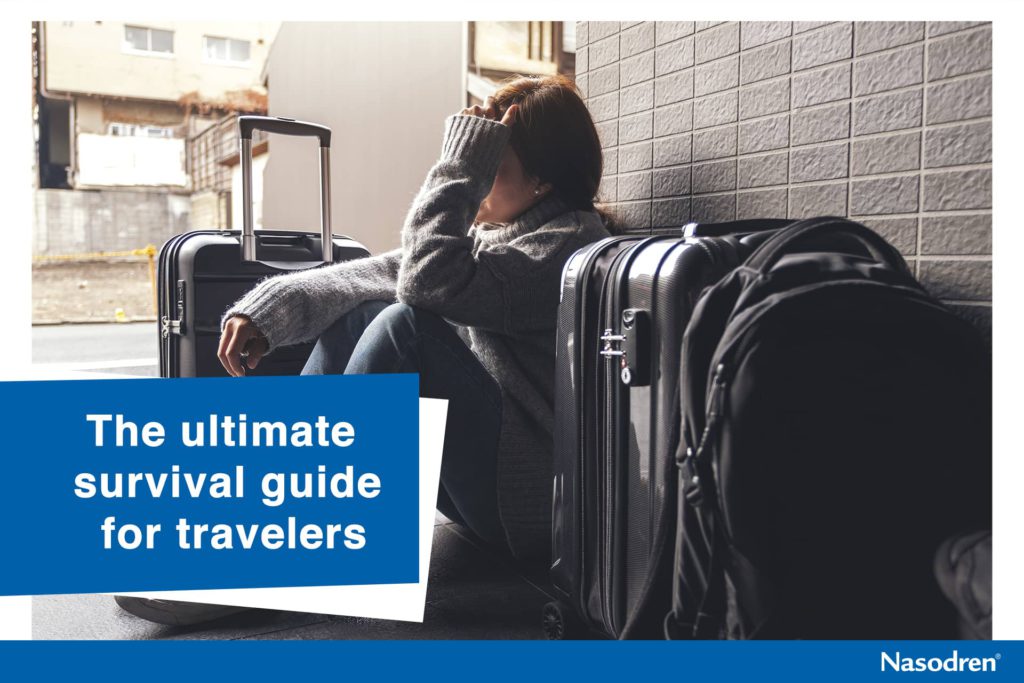It’s holidays and this means that you may be about to start packing your suitcase. The time of crossing days off the calendar has come to an end, and you can finally embrace the excitement. No matter how far you go, traveling requires some planning and preparation. And, by that, we don’t just mean that you need to book a flight and a hotel or get tickets for the tour you’ve been dreaming of over the last few weeks. It’s also about taking care of yourself and ‘your people’ while being out of your comfort zone and knowing what to do when health issues arise.
Some people think that it just takes packing a few essential medications to overcome any possible difficulties you may come across during a trip, but that won’t help much under certain circumstances. The process involves a lot more details that need to be taken into account before, during and after our holidays.
That said, here’s a quick guide with key health tips for travelers, so that you don’t regret being away from home.
Before traveling
– Where are you going to spend your days off? That’s the first thing you should bear in mind. Learn as much as you can about your destination: the weather (if it’s severe or very changing), health concerns or the location of the main healthcare facilities.
– Check the latest news (on the World Health Organization web page) about the place or country you are visiting, and make sure there aren’t any travel alerts such as natural disasters in the short term.
– See your doctor for a check-up. Not only will he or she rule out any pathology, but will also give you general advice on what to do in case, for example, you get sick abroad. Also, If you happen to have a condition that requires regular treatment, take the opportunity to get prescriptions so that you don’t run low on medication.
– Consider who you are traveling with. For instance, elderly relatives or children, who are at a greater risk and, thus, may have special needs depending on where you are going to spend your vacation.
– Get familiar with the healthcare system of your destination and check your insurance coverage to see what options are available for you out there.
– Pack smart and don’t forget a first-aid kit that, at least, should include antiseptic, cotton-tipped applicators and band-aids. Painkillers, antidiarrheal medication and even antibiotics (under medical prescription) can also come in handy, as well as additional items such as sunscreen, hand sanitizer or mosquito repellent.
– Get your shots on schedule. If you are traveling internationally, find out (on Centers for Disease Control and Prevention) whether there’s risk of contracting certain diseases in your destination. If so, sorry, but it’s time for you to get vaccinated!
During your trip
– Pay attention to your body. Are you spending too much time in the sun? Do you feel dizzy? Do you have multiple mosquito bites and a fever? Every symptom counts when it comes to prevention and treatment!
– Watch what you put in your mouth! Don’t eat raw vegetables without washing them properly and avoid eating unrefrigerated meat and fish to prevent food poisoning. The same advice goes for water: drink only bottled, carbonated or boiled water to keep yourself from possible infections.
– Avoid swimming in waters with poor sanitation in order to prevent eye, ear, skin and intestinal infections.
– Take safety measures when moving between different areas or doing adventure activities. If you are going by car, wear a seatbelt, and if you can avoid being all by yourself on the road, even better.
– On long-haul flights, be sure to stand up and walk every now and then and wear comfortable clothes and shoes. This is a good way to allow for an adequate blood flow, thereby preventing blood clot formation.
– Drink plenty of fluids to keep your body well hydrated and limit alcohol intake before doing outdoor activities or, of course, driving!
– Get enough rest and don’t push yourself too much, especially if you are traveling with children. We want your immune system to work at its best!
– Wash your hands with soap and water as often as possible to keep the lid on germs.
– If you do feel sick and need a doctor, go to the healthcare facilities previously checked. In case you haven’t planned for it, you should ask the staff at your hotel for advice and help.
Once you are home…
Your vacation is over, yet you may not be problems-free. You would do well to watch for unusual symptoms in the upcoming days, especially if you went to tropical areas. Certain diseases show up even weeks after the infection occurs, so don’t hesitate to seek medical help when noticing any red flags.
Tips aside, we hope that you ‘enjoy the ride’ without any bumps on the way. Just one extra reminder before letting you enjoy your holidays: if you happen to suffer from sinusitis, which we are experts in, be careful when traveling by plane as you may struggle with different symptoms. Fortunately, there’s an effective solution!
